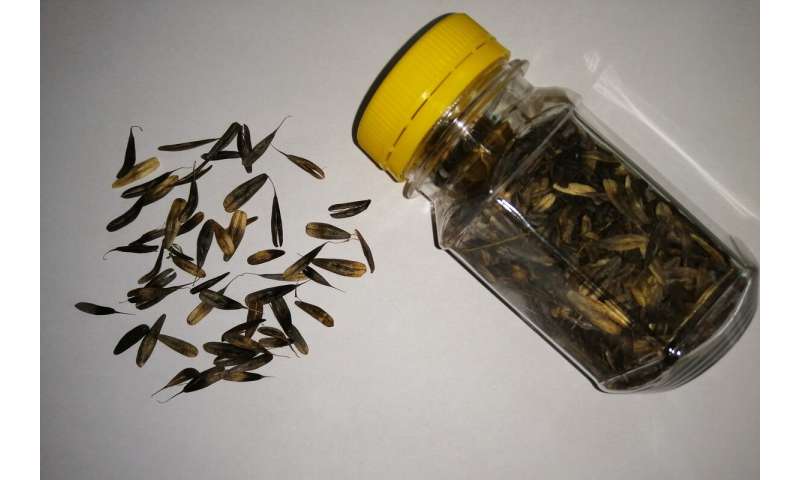TSU biologists offer a plant to protect against the virus

The staff of the Siberian Botanical Garden and the TSU Biological Institute suggest using dyer's woad (Isatis tinctoria) as a complex measure for the prevention and treatment of infectious diseases. А unique plant from the cruciferous family, its high antiviral and antimicrobial activity were confirmed by the research of Vector, the State Research Center of Virology and Biotechnology. Last year, a dyer's woad planting was laid in the nursery of nontraditional crops at the Siberian Botanical Garden for research purposes. Given the difficult situation due to the need to protect Russians from the coronavirus (COVID-19), now scientists are ready to grow dyer's woad in large volumes for supply to food workers and pharmacologists.
- Dyer's woad was very popular in Western Europe. In the Middle Ages, natural dyes were obtained from its grass. In Russia, this plant has been cultivated in small volumes in recent decades, mainly as a good honey plant and promising fodder plant, - says Svetlana Mikhailova, associate professor at the TSU Department of Agricultural Biology. - In southeastern countries, primarily in China, dyer's woad is widely used in traditional medicine. This plant is part of complex elixirs, often as the main component for the drugs used to treat flu and other infectious diseases.
According to TSU scientists, effective approaches are needed to protect the population in the coronavirus pandemic. One such measure could be the use of dyer's woad grass and root for the manufacture of preventive and therapeutic plant-based treatment and prophylactic complexes. It was in fact dyer's woad water extracts, along with Japanese honeysuckle, that were used to treat patients with the SARS virus (another type of coronavirus—SARS-CoV) in China in 2003. This disease is best known in the world as Avian influenza.
The State Research Center of Virology and Biotechnology Vector (Novosibirsk) investigated the effects of dyer's woad, red peony, and Japanese honeysuckle in in-vitro experiments on sensitive cell cultures using influenza, measles, and mumps viruses and in-vivo experiments on a mouse model using Avian influenza virus subtype H5N1. A series of experiments confirmed the high biological activity of the dyer's woad root. After its use, more than half of the rodents infected with the Avian influenza virus survived. The maximum protection coefficient was recorded in Japanese honeysuckle, which turned out to be effective, including for measles and mumps viruses.
As TSU scientists note, dyer's woad is very unpretentious, so growing it in Siberia is quite simple. If necessary, its staff can grow dyer's woad in large volumes sufficient for the industrial production of herbs with antiviral, antibacterial, and immune-stimulating activity.
Provided by Tomsk State University